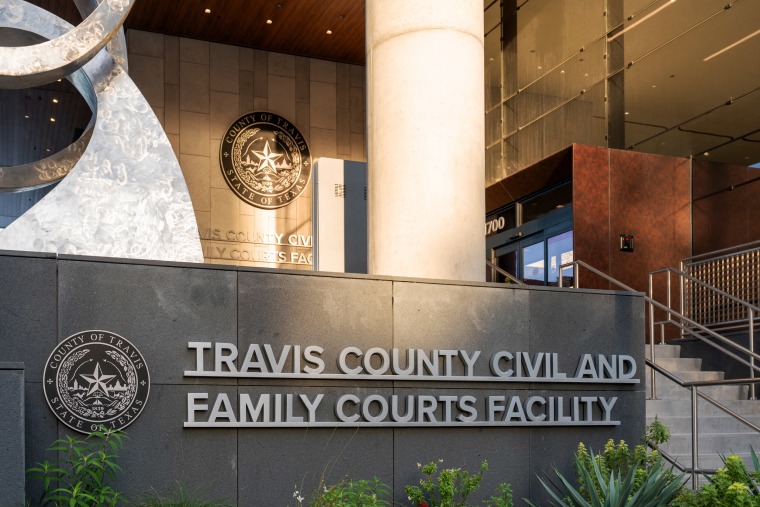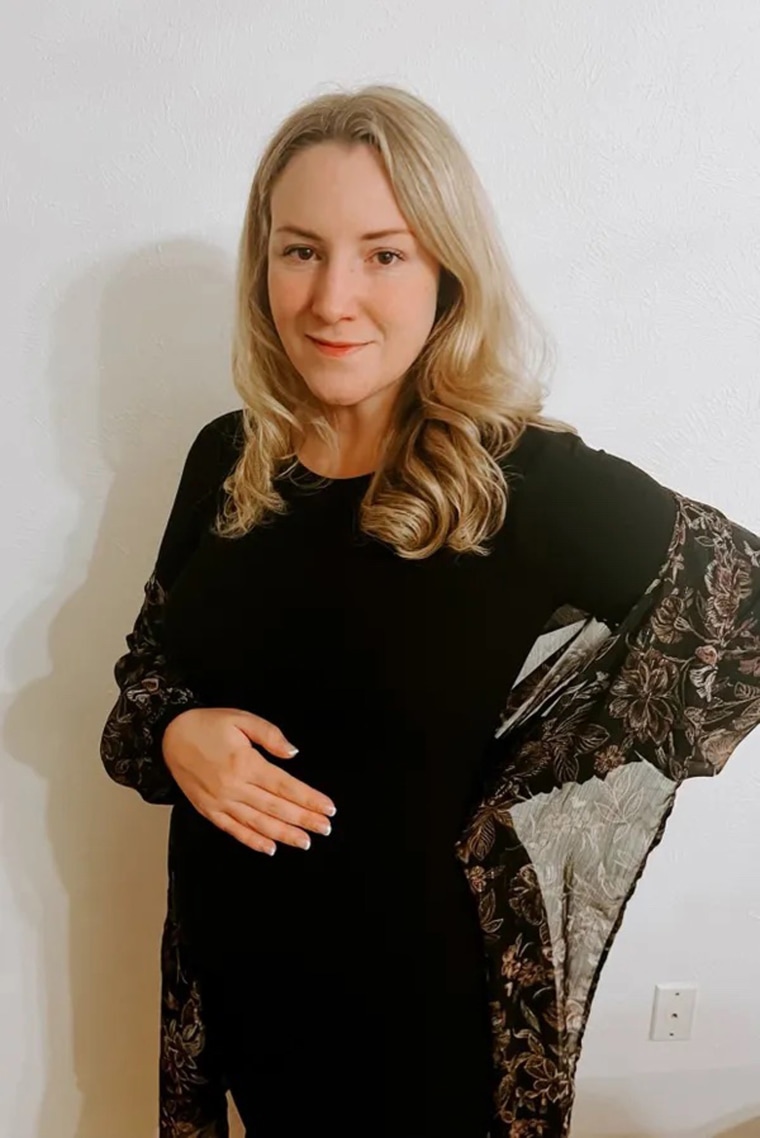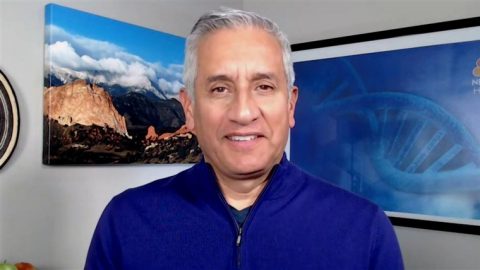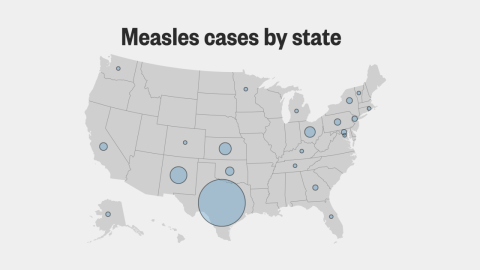A Texas judge on Thursday granted an emergency order allowing a pregnant woman whose fetus has a fatal diagnosis to get an abortion in the state.
Late last month, Kate Cox, a 31-year-old Dallas-area mother of two who is about 20 weeks pregnant, found out that her developing fetus has trisomy 18, a rare chromosomal disorder likely to cause stillbirth or the death of the baby shortly after it’s born.
Texas law prohibits almost all abortions with very limited exceptions. So on behalf of Cox, her husband and her doctor, lawyers with the Center for Reproductive Rights filed a request for a temporary restraining order that would block the state’s abortion bans in Cox’s case and enable her to terminate her pregnancy.

“Kate Cox’s life and future fertility are at great risk, and according to her doctor, the medical care that she needs is an abortion,” Molly Duane, a senior staff attorney at the Center for Reproductive Rights, said in the hearing Thursday.
Cox’s two children were delivered by Cesarean section, so carrying this pregnancy to term and getting a third C-section could put her at risk for multiple serious medical issues, Duane said.
She argued during the hearing that Cox was “at high risk for multiple pregnancy complications including hypertension, gestational diabetes and infection,” and said that within the last two days, Cox had to visit an emergency room for a fourth time “for pregnancy symptoms including severe cramps leaking fluid and elevated vital signs.”
“Many of Miss Cox’s health risks during this pregnancy will put her life in danger if left untreated, and carrying this pregnancy to term will significantly increase the risks to her future fertility, meaning that she and her husband may not be able to have more children in the future,” Duane said.
State District Judge Maya Guerra Gamble quickly granted the requested order, which also allows Cox’s doctor to perform the abortion without fear of prosecution.
“The idea that Miss Cox wants desperately to be a parent, and this law might actually cause her to lose that ability is shocking and would be a genuine miscarriage of justice,” the judge said.

Johnathan Stone, an attorney with the Texas attorney general’s office who represented the state in the hearing, argued that Cox and her husband had not sufficiently demonstrated that they would suffer “immediate and irreparable injury” without an abortion.
“The only party that’s going to suffer an immediate and irreparable harm in this case” if the judge grants the requested order, he said, “is the state.”
Stone pushed instead for an evidentiary hearing, saying an emergency order would enable the couple to get an abortion that “can’t be undone” before the court could fully consider the evidence.
Neither the Texas attorney general’s office nor the state’s medical board immediately responded to requests for comment about the judge’s decision.
Trisomy 18, a severe genetic condition, occurs when a fetus has an extra copy of chromosome 18. The anomaly is random, occurring in around 1 out of every 2,500 pregnancies, according to the Cleveland Clinic. At least 95% of fetuses with the condition don’t survive to full term, meaning pregnancies end in miscarriage or babies are stillborn. Infants born with trisomy 18 have many birth defects, which can cause life-threatening consequences. Almost 40% don’t survive labor, and less than 10% live past their first year.
In a news conference after the hearing, Duane said her team was relieved by the judge’s ruling and that “every day of this ordeal has been agonizing” for Cox.
“I want to emphasize how unforgivable it is that Kate had to beg for health care in court. No one should have to do this,” she said. “The reality is that 99% of people cannot.”
Duane also called the state’s arguments “callous in the extreme.”
“They want Kate to suffer, to put her health at risk and to give birth to a stillborn baby or be forced to watch her child suffer for the few short moments of her life,” she said. “That is a decision that only a family should be able to make on their own.”
Since the Supreme Court’s decision to overturn Roe v. Wade in June 2022, more than a dozen states have banned abortion or no longer have facilities where women can receive the procedure.
In another lawsuit in Texas, the Center for Reproductive Rights sued on behalf of two OB/GYNs and 20 women who were denied abortions “while experiencing severe and dangerous pregnancy complications,” according to the center.
That case seeks clarify which situations qualify for medical exceptions under Texas’ abortion laws. The state Supreme Court heard arguments last week, after a lower court issued a ruling in the plaintiffs’ favor that blocked Texas’ bans from applying in situations like theirs.
Although abortion restrictions have kicked off a wave of legal challenges across the country, Cox’s case is one of the first of its kind — very few pregnant women have thus far sought emergency court orders to receive an abortion.
Duane said after the hearing that for many people, traveling out of state for an abortion isn’t an option: “They can’t leave their home communities for urgent health care, getting on the plane in the middle of a medical emergency,” she said.
“Kate wants to be able to receive health care in her own community and a place that she feels comfortable,” Duane added. “She’s a lifelong Texan, her whole family lives here.”







Recent Comments